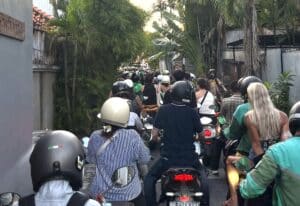
Will Nusa Penida Succumb to Over Tourism Like Bali?
Our new blog post examines the threat of unsustainable tourism development in Nusa Penida to the coral reefs. While the Marine Protected Area (MPA) has been established since 2010, land-based pollution from unchecked development is starting to degrade these vital ecosystems.
Our coral restoration efforts in Ped show promising progress, but the long-term health of Nusa Penida’s marine life depends on sustainable management, including clear guidelines for visitors and developers, robust waste management, and comprehensive environmental protection. Let’s protect this paradise!
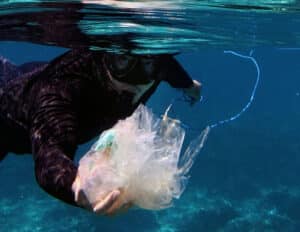
Bali’s Plastic Problem: A 2025 Update on the Fight for a Cleaner Paradise
Our latest blog post looks at the recent plastic ban in Bali. With all the plastic pollution we saw during our dives, we were curious about the recent plastic ban. Bali generates 3,436 tons of waste daily, with landfills overflowing into illegal disposal. The ban is set for full enforcement by January 2026 will span all sectors including government, businesses, and schools, is a key step towards Bali’s ambitious goal of becoming waste-free by 2027.
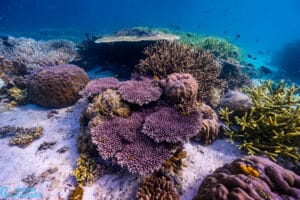
Common Coral Outplanting Methods Used In Coral Restoration
One of our founders, Vincent Chalias, shares the 7 most common outplanting methods used in coral restoration and their pros and cons.
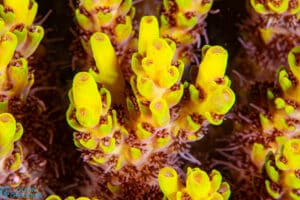
Why Acropora are important?
Acropora is the largest genus of hard corals Boasting an impressive diversity of 140 to 400 species, Acropora stands as the world’s most expansive genus of hard corals. While often characterized by their striking tabular or branching structures, their true uniqueness lies in the presence of specialized polyps: a leading axial polyp positioned at the very tip of each branch, guiding its outward growth, and numerous smaller radial polyps that populate the branch’s lateral surfaces. They dominate the shallow reefs but can also be found in the depths of 120m in the mesophotic zone. Acropora
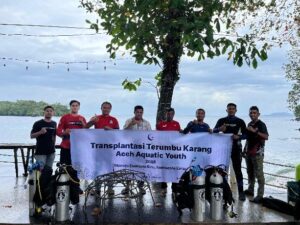
An insight into Aceh’s coral reef restoration efforts
Ibnu, one of our scholarship recipients, gives us an insight into his organization and their methods and his learning after 4 weeks with us.
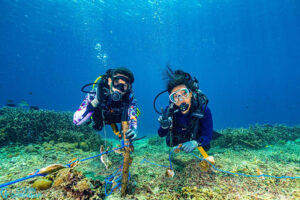
Citra’s lifechanging experience with coral restoration
Citra was one of the 4 Indonesians selected by Ocean Gardener to receive our scholarship to take part in our Full Coral Restoration Certification course. She shares her experience spending the 4 weeks with other students learning more about corals, their restoration and applying these lessons practically during their dives in various locations around Bali, Indonesia. I never imagined that a single email could change the course of my journey in marine conservation. When I received the news that I had been awarded a scholarship to join Ocean Gardener’s coral reef restoration course, I was
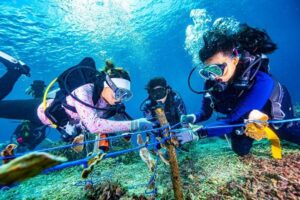
Ivon’s inspiring 4 week journey in coral restoration
Ivon was one of the 4 Indonesians selected by the Mero Foundation to receive a scholarship to take part in Ocean Gardener’s Full Coral Restoration Certification course. She shares her experience spending the 4 weeks with other students learning more about corals, their restoration and applying these lessons practically during their dives in various locations around Bali, Indonesia.
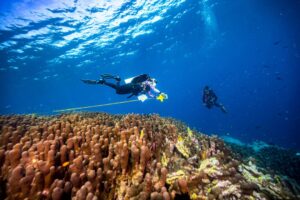
Could This Be the World’s Largest Coral Colony? Nusa Penida’s Galaxea astreata Stuns Scientists.
Only a few weeks after a remarkable colony of Pavona clavus, claiming the title of the world’s largest coral was found and measured in the Solomon Islands, another giant coral colony was measured in Nusa Penida, Bali, Indonesia, and discovered to be even bigger. In early December 2024, a team of young Indonesian marine biologists from Ocean Gardener, after receiving training from the Italian University of Milano Bicocca program ‘Map the Giants, located and measured what could be the biggest coral colony in the world! The now famous Solomon Island Pavona colony is 34m wide, 32m
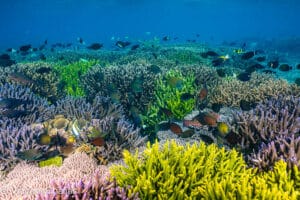
Coral Reef Conservation, through Community building.
Local community work is key to successful coral reef restoration work.
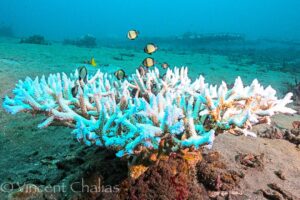
Mass coral bleaching in North Bali!
Coral Reefs of North Bali are experiencing Massive Bleaching Event
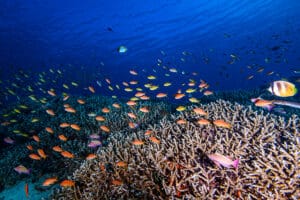
The Importance of Boat Moorings in Reef Restoration: Safeguarding Coral Reefs with Smart Solutions
Moorings maintenance is a real component of reef restoration.
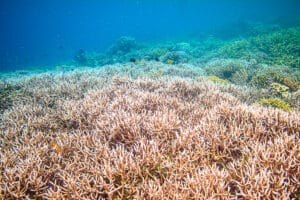
What can we do in case of coral bleaching?
There is only so much we can do in case of coral bleaching, here is few ideas!